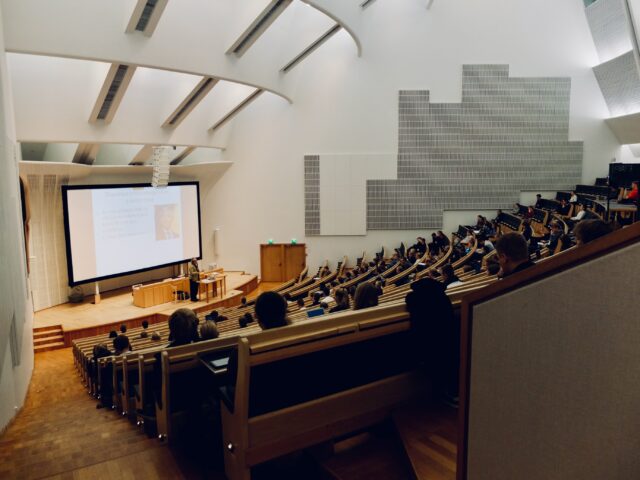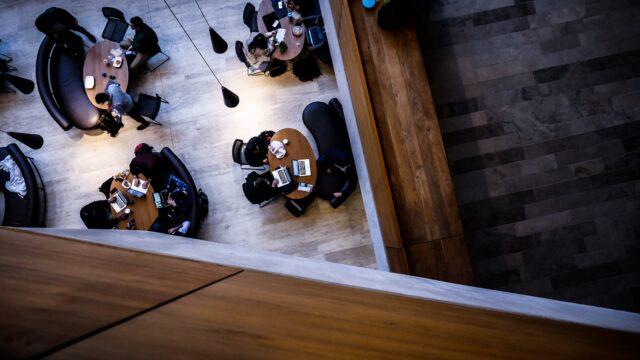Colleges Ontario recently released a set of sector-wide standards that will protect international students. The standards include transparent and accurate marketing, requiring international agents to complete an endorsed agent training program, ensuring that students receive key information before arriving in Ontario, and providing students with help adjusting. Colleges will be expected to be compliant by June 2024 and will undergo a review process. 23 of Colleges Ontario’s 24 members committed to the standards: The Toronto Star reports that Seneca College did not sign on because it is planning to release a similar strategy for both international and domestic students.

Top Ten News
March 17, 2023
The University of King’s College has officially released the final report on the independent review of accusations of sexual assault against the late Dr Wayne Hankey. The report authors summarized the history of accusations and investigations into Hankey’s behaviour and concluded that “Dr Hankey engaged in a pattern of predatory and abusive behaviour towards some young men” and exploited his position at King’s to do so. They noted that King’s response to information about Dr Hankey’s behaviour was “lacking” and “served to protect Dr Hankey.” In an address to the university community, U of King’s College President William Lahey formally apologised for the university’s failure to address Hankey’s behaviour in full, accepted the report’s findings and recommendations, and shared information about supports for community members.
The Government of Ontario announced a $343M investment over five years to support agri-food research and innovation. The Ontario Agri-Food Innovation Alliance—which is a collaboration between the University of Guelph, the provincial government, and the Agricultural Research Institute of Ontario (ARIO)—will use the funds for research on food safety and animal welfare as well as workforce skills development. “This collaboration has been a key driver of important research that has led to significant and important agri-food innovations in Ontario,” said ARIO Chair Lorne Hepworth. Work will be supported by research centres owned by the ARIO and managed by UoGuelph.
A recent CBC article discusses the challenges paralympic athletes face when participating in sports and training at Canadian universities. Canadian Paralympic Athletes’ Council Chair Erica Gavel said that Canadian institutions lag behind their UK and US counterparts when it comes to para-athletic programs. She stated that many Canadian universities must be clearer about the supports they provide to Para athletes and provide a professional training environment and formal competitive framework for them that covers topics such as access to facilities, therapy, coaching, and accommodations.
Université Laval and the Canadian Medical Association (CMA) are partnering to train future leaders in the medical sector. The Programme d’accompagnement en gestion et leadership médical (Medical Management and Leadership Coaching Program) will support Quebec medical school residents as they enhance their management and leadership skills. CMA will provide funding to reduce registration costs for the French-language program in order to ensure accessibility.
Trinity Western University’s faculty have voted to unionize with the Christian Labour Association of Canada (CLAC) as their representative. The representation vote took place in October 2021, but the results were sealed after TWU challenged the certification application through the British Columbia Labour Relations Board (BCLRB). The ballots were revealed after the BCLRB dismissed the university’s challenge, unveiling that 64% of faculty who participated in the vote favoured unionization. “We believe a modern labour relations framework will help create new supports and structures that will enhance the well-being of the university’s current and future educators,” said CLAC representative Nathan Mathews.
A series of innovative projects at the University of British Columbia, University of Calgary, and Concordia University are tackling the problem of Styrofoam waste. At UBC, researchers partnered with the Wet’suwet’en First Nation to develop a new biofoam that uses the natural fibres from waste wood. At UCalgary, PhD students introduced a polystyrene recycling program for the school’s labs that has recycled more than 2,000 pounds of Styrofoam over the last year. Concordia’s Centre for Creative Reuse tasked undergraduate art students with creating art without producing waste; one student converted Styrofoam waste into a castable resin for sculptures.
As institutions continue to consider TikTok on institutional devices, Collège Ahuntsic, Conestoga College, and Concordia University have announced that the app will not be allowed on institution-owned devices. Ahuntsic issued a statement indicating that the app will be blocked across its internet network and removed from college-owned devices after the college received a directive from the provincial government prohibiting its use. Conestoga will ban TikTok on all its devices – including computers, tablets, and phones – and will suspend the institution’s TikTok accounts. Concordia is requiring those who have university-funded smart phones and tablets to uninstall the app. CTV News reports that Wilfrid Laurier University and the University of Waterloo are monitoring the situation.
Bishop’s University has a new mobile maple syrup-making production unit that will support maple syrup production on the university’s educational farm. The production unit, which was built by students as part of an experiential learning course, was designed to fill a need for equipment and space to cultivate extracted sap. The unit was developed by four students and was constructed from a modified 18-foot trailer using recycled items such as old electrical poles, doors, and paint. “The only criteria we had was to build a maple syrup production camp that’s on a trailer,” said student Gabrielle Bourbeau. “We all had different backgrounds, different opinions, different priorities.” The group hope to tour the mobile unit around the campus and the nearby community of Lennoxville, QC, this spring.
This week, Aurora College launched its nanosatellite AuroraSat into space. AuroraSat is expected to be in orbit for one year and has several missions: to display Northern artwork; transmit messages in Gwich’in and Inuvialuktun; and measure the Earth’s magnetic field. The nanosatellite was constructed by the Aurora Research Institute with support from high school students from the Inuvik Robotics Club. This project has been in development since 2018 as part of Northern SPIRIT, a consortium with the University of Alberta and Yukon University. “The Northern SPIRIT consortium has provided a unique opportunity to show that technical work, such as the construction of satellite payload, can be done in the North,” said Patrick Gall, Engineering & Technology Project Technician at Aurora.
